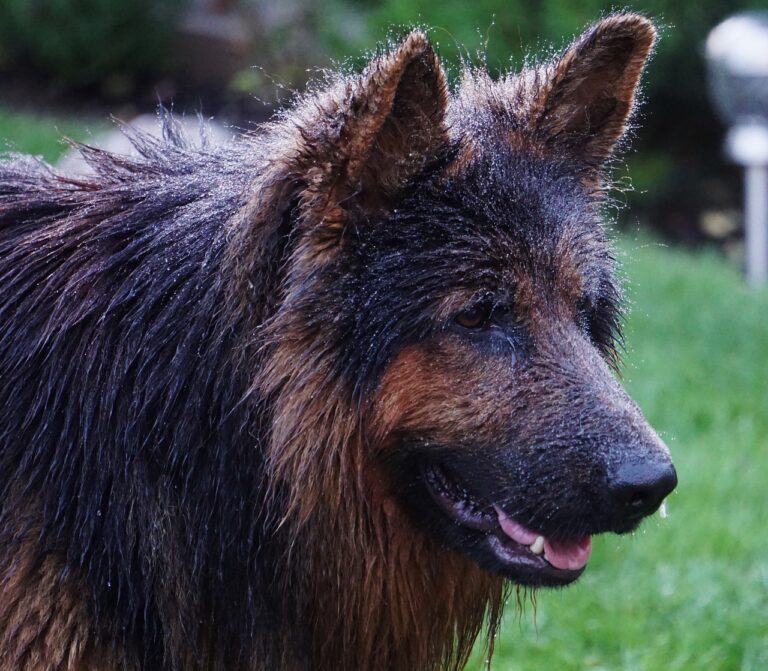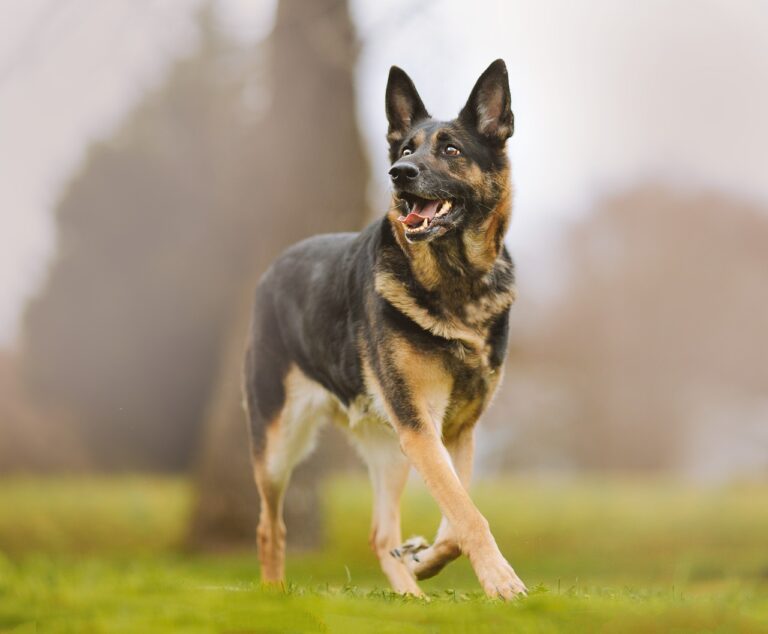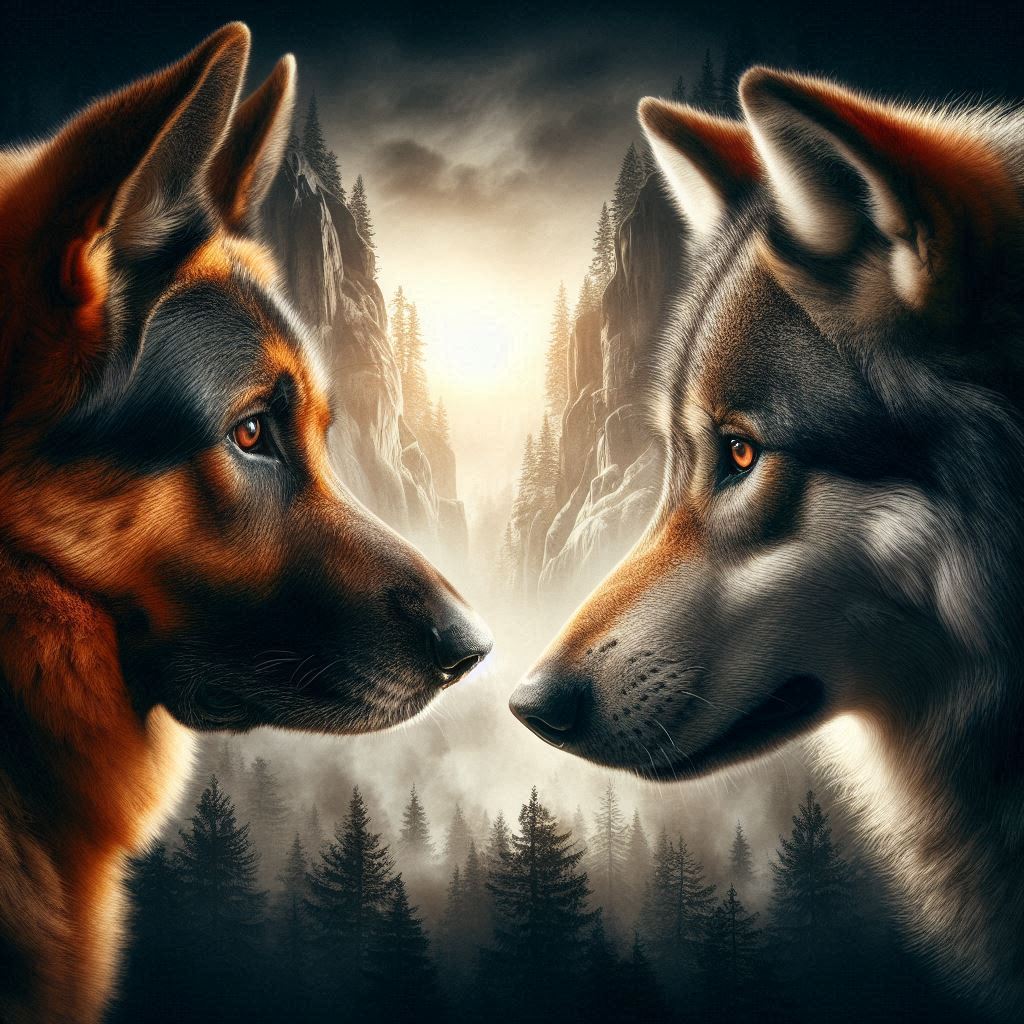
Most people today think that German Shepherds are some breed of Wolf. This is because GSDS look like wolves. Because of this same reason, most people have been made to wonder if a German Shepherd could live with a wolf or pack of wolves.
German Shepherds could live and co-exist with a wolf or pack of wolves only if they were raised together. This would mean adding a German Shepherd to a wolf litter or litter. This idea leave us with many other questions. (1) What would make a German Shepherd need to live with a wolf? (2) which would dominate the pack, and (3) Would the situation affect their overall behavior? This post will answer these three questions in this article.
What would bring a GSD and Wolf together?
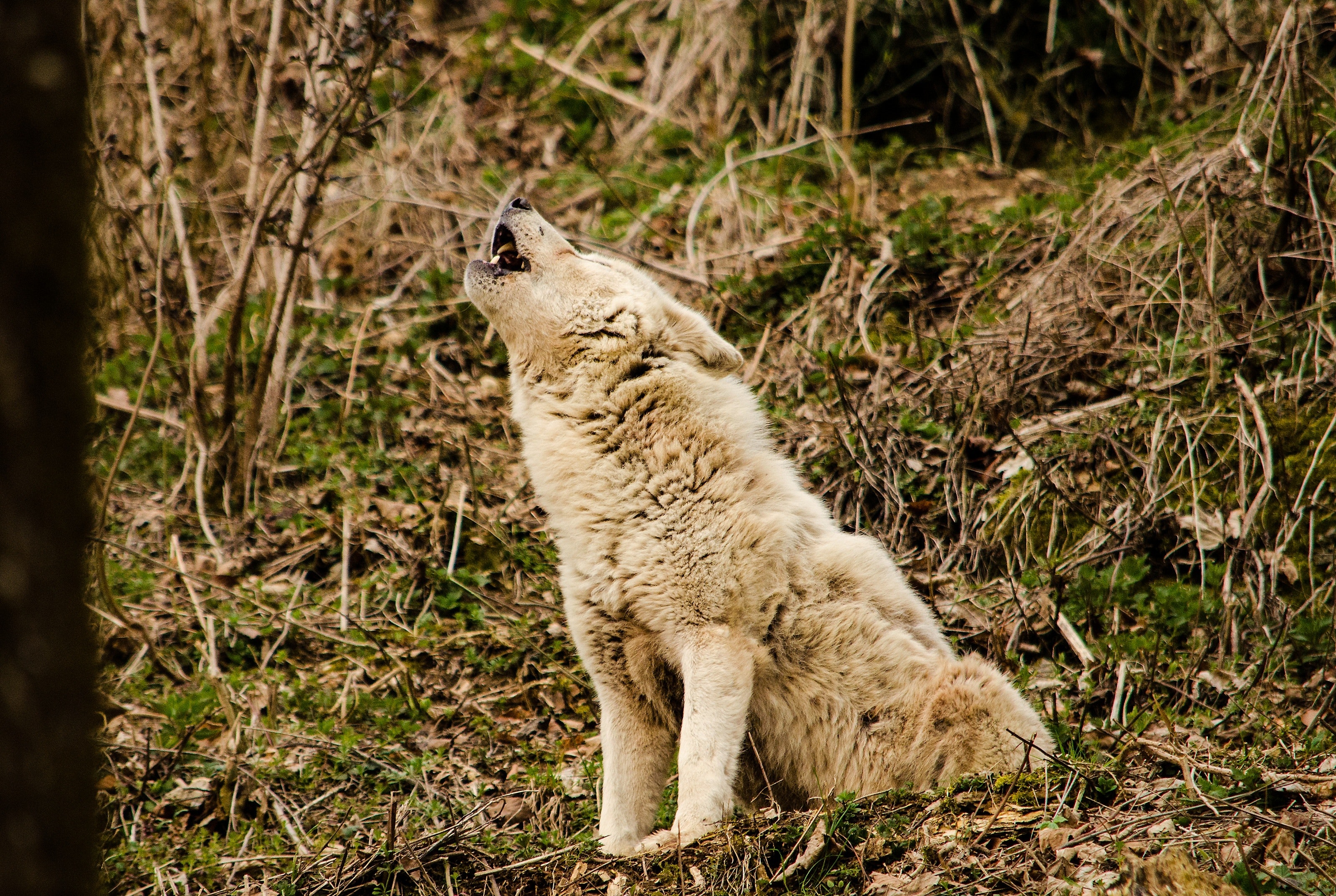
Many situations have been seen to bring both a German Shepherd and a wolf together. We have seen cases where a wolf pup loses its mum and is rescued by farm owners with a GSD or GSDs. These owners with golden hearts take it upon themselves to raise the Wolf. These situations have been seen to be expected in Yellowstone and other parts of Antarctica.
There is another situation that is also common in Yellowstone. Well, another reason is for research. Many scientists and experts in animal behavior are fascinated with the similarities in appearance between wolves and dogs.
They have put them in the same environment to gather data and analyze whether wolves are indeed the dog’s ancestors. Well, that’s not the purpose of this blog post. But now that wolves and dogs can, and have been made to live together, what has been the result? Did this Domestication affect the overall behavior of the Wolf?
Result of Domestication in wolves.
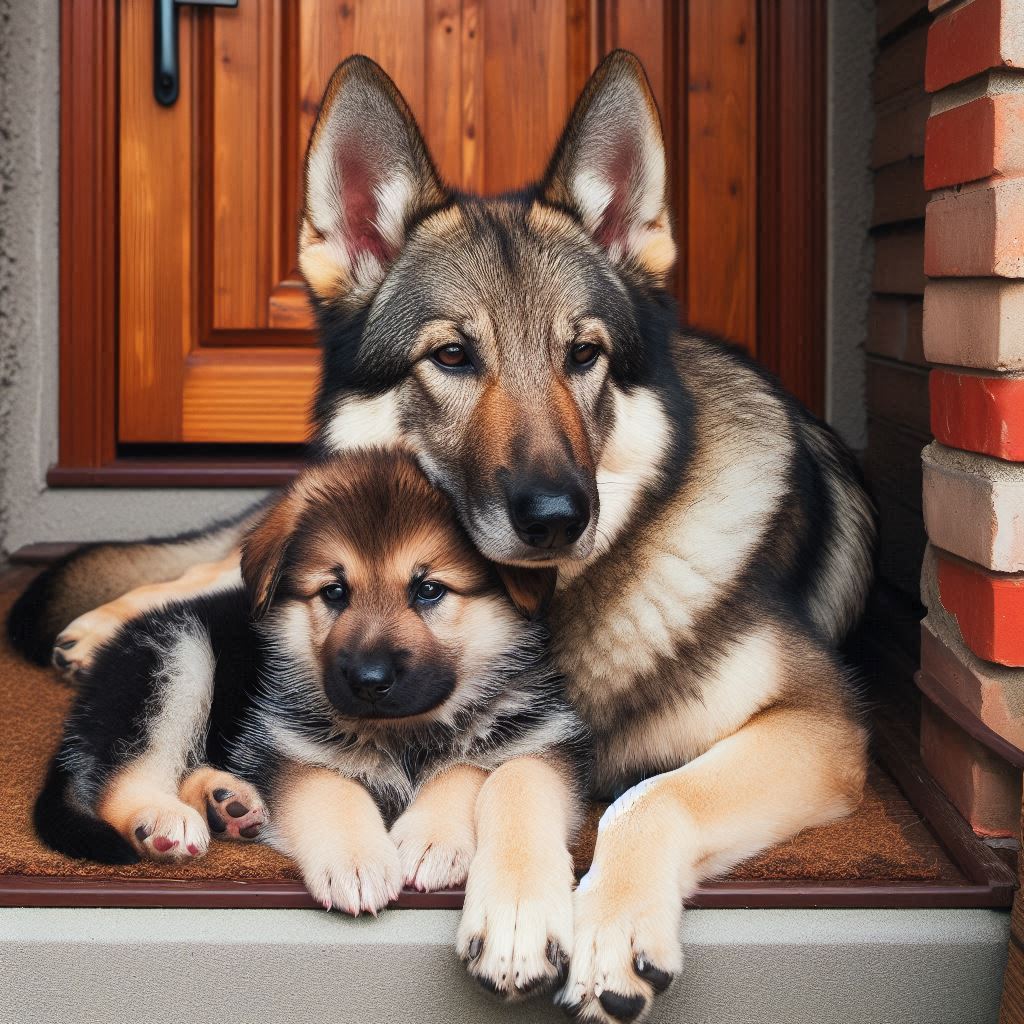
Studies have shown that if a wolf and a German Shepherd or any other dog have the opportunity to live in an uncontrolled environment, the Wolf will dominate and lead. This is because of Wolf’s instinct to survive and thrive. The German Shepherd or any other dog attached to the Wolf would rely on it for food.
The situation, though, is quite different when the Wolf and the German Shepherd are raised under the supervision of a human. With the human taking over the responsibility of feeding and caring for the dog, there is sometimes seen a change in the Wolf’s behavior.
The Wolf tends to have no problem depending on the human but may develop some traits common in dogs. But we have seen that a wolf and a German Shepherd can co-exist peacefully if appropriately raised. Though a wolf and a German Shepherd can co-exist in harmony when controlled, which breed would dominate? Well, there is a lot to consider. Let’s look at two factors.
Factors that affect which breed dominates ( Wolves V German Shepherd ).
The Wolf’s dominance in an uncontrolled environment.
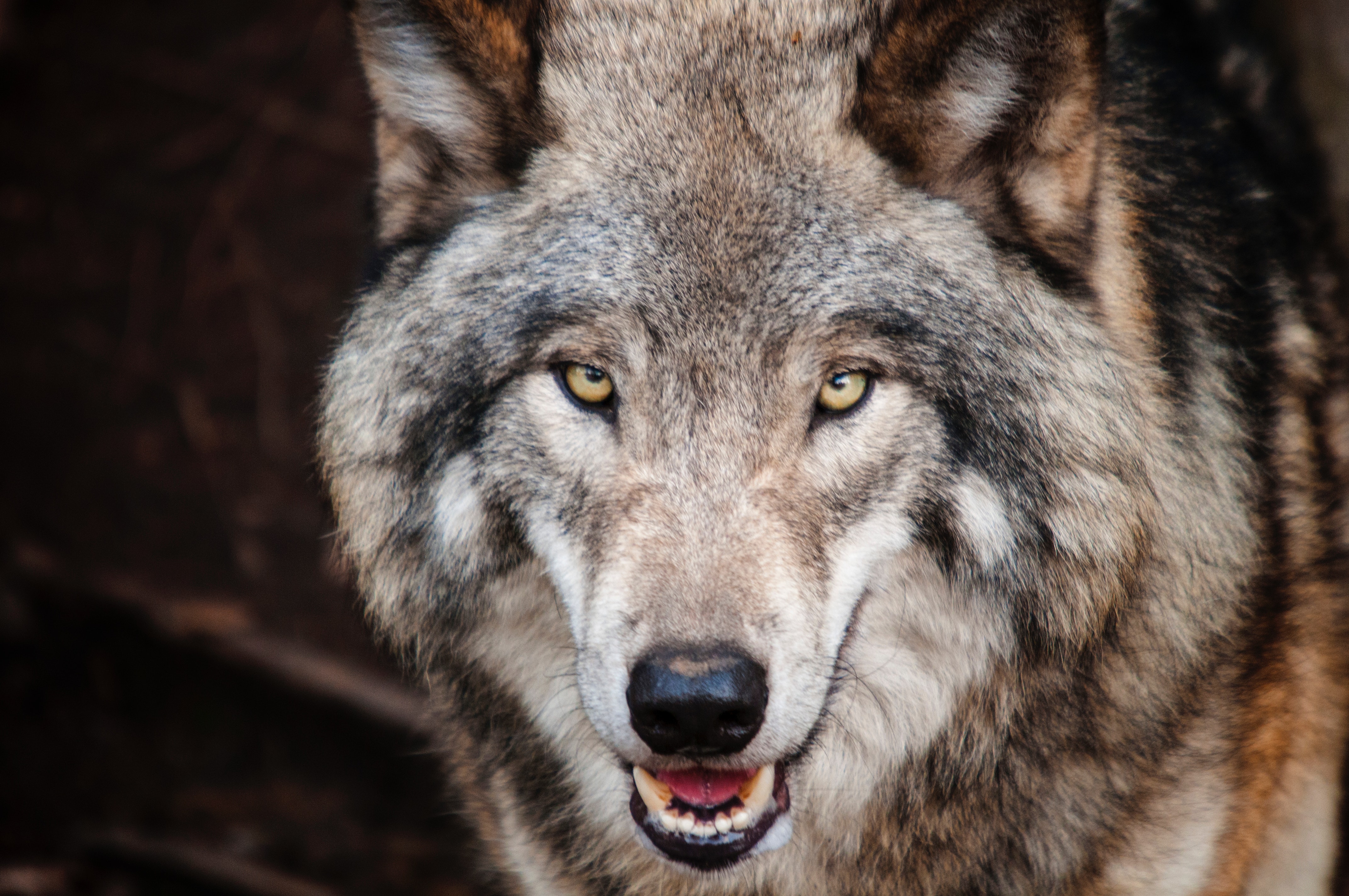
Because of Wolf’s dominance in the wild and experience, it would be evident that it would dominate the GSD in the wild. But GSDs are brilliant and all-purpose utility dogs.
They would and have been seen to adapt quickly to any terrain. There will also likely be a power struggle when the Greman Shepherd begins to learn. But the fact remains that the Wolf is an intelligent and more sophisticated spy. The Wolf would surely come out on top.
When the GSD is the Majority.
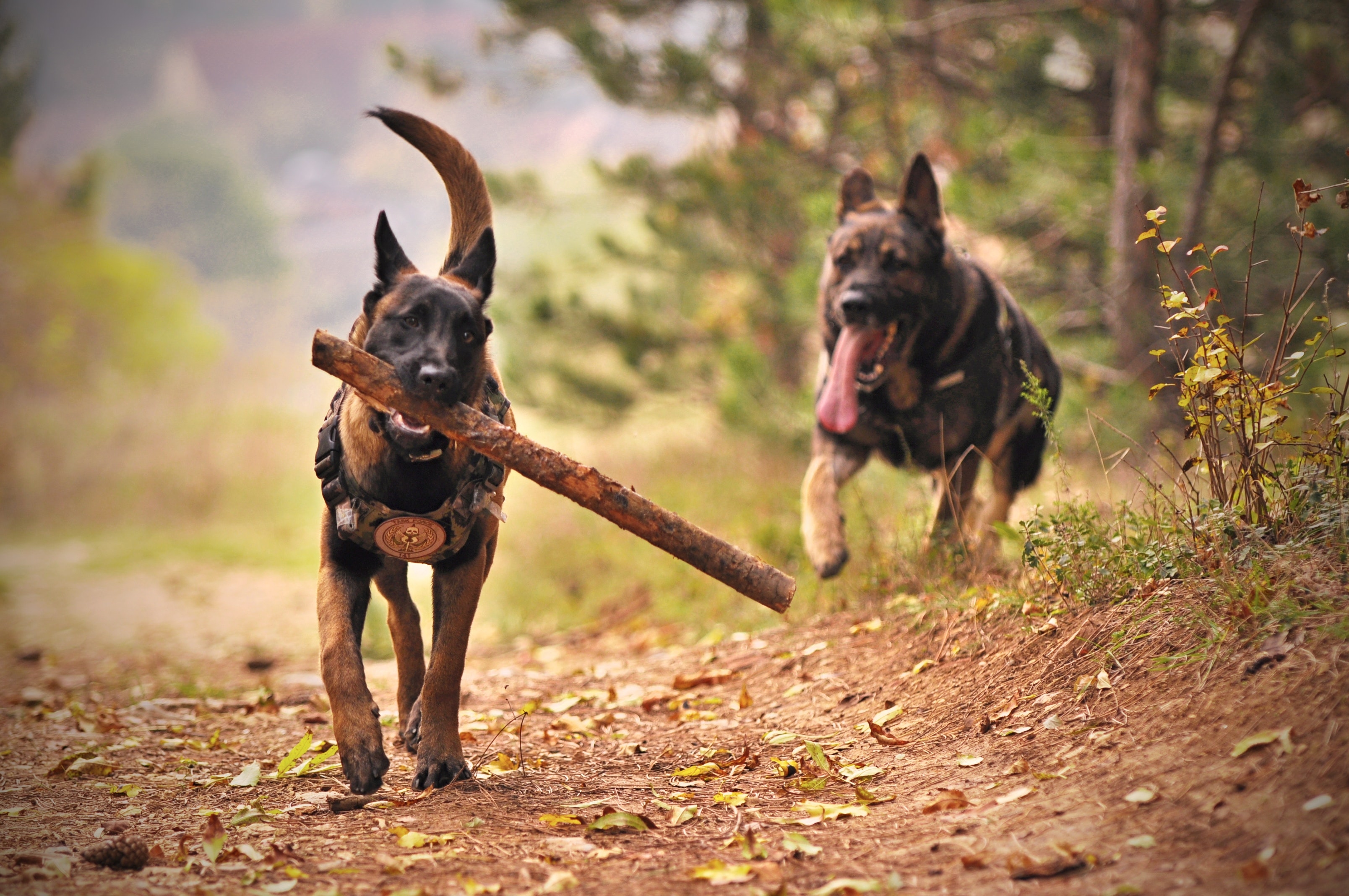
In another situation where the GSD is the majority, a scenario where two or more GSDs are raised with one Wolf added to the litter, it is often seen that the dominant male GSD tends to want to dominate.
But though the Wolf might have had a little domestication at this point, there would still be a power struggle. It has been since that Wolf in this setting ended up needing to be separated from the pack. This is because of an endless battle that seems to be never-ending.
How Domestication affects a wolf’s behavior.
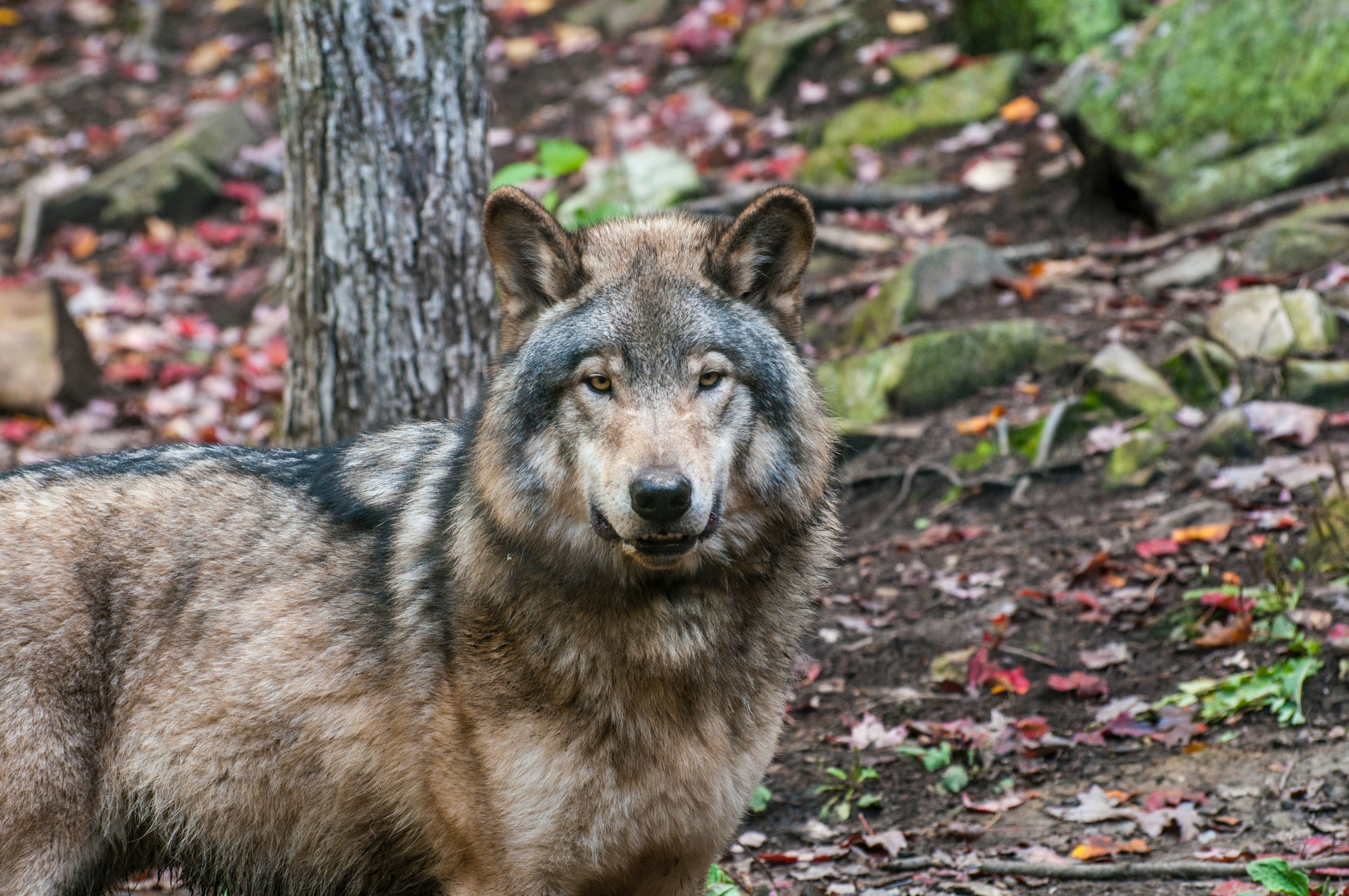
Most people have tried to domesticate wolves and keep them with other pets. Though the Wolf tends to adapt initially, there is always a problem when the Wolf gets a bit older. This is because of the other traits and programming embedded in the Wolf.
The wolves are pack animals who love freedom and the thrill of being independent and hunting their own game. These traits in themselves make it more complicated at a later time for a wolf and its human and animal companion to co-exist together.
It is noticed that instead of the Wolf picking up significant and unchangeable traits, it only tries to adapt to its present situation.
Once the Wolf is returned to its natural habitat, there is a drastic change in its behavior. However, it becomes a bit harder to adjust, most especially if it has never had to fend for itself.
Domesticated wolves later introduced to the wild tend to be more calm and relaxed around people and not act like their spies, which are known to be very shy and unwelcoming to humans.
Should you keep Wolves?
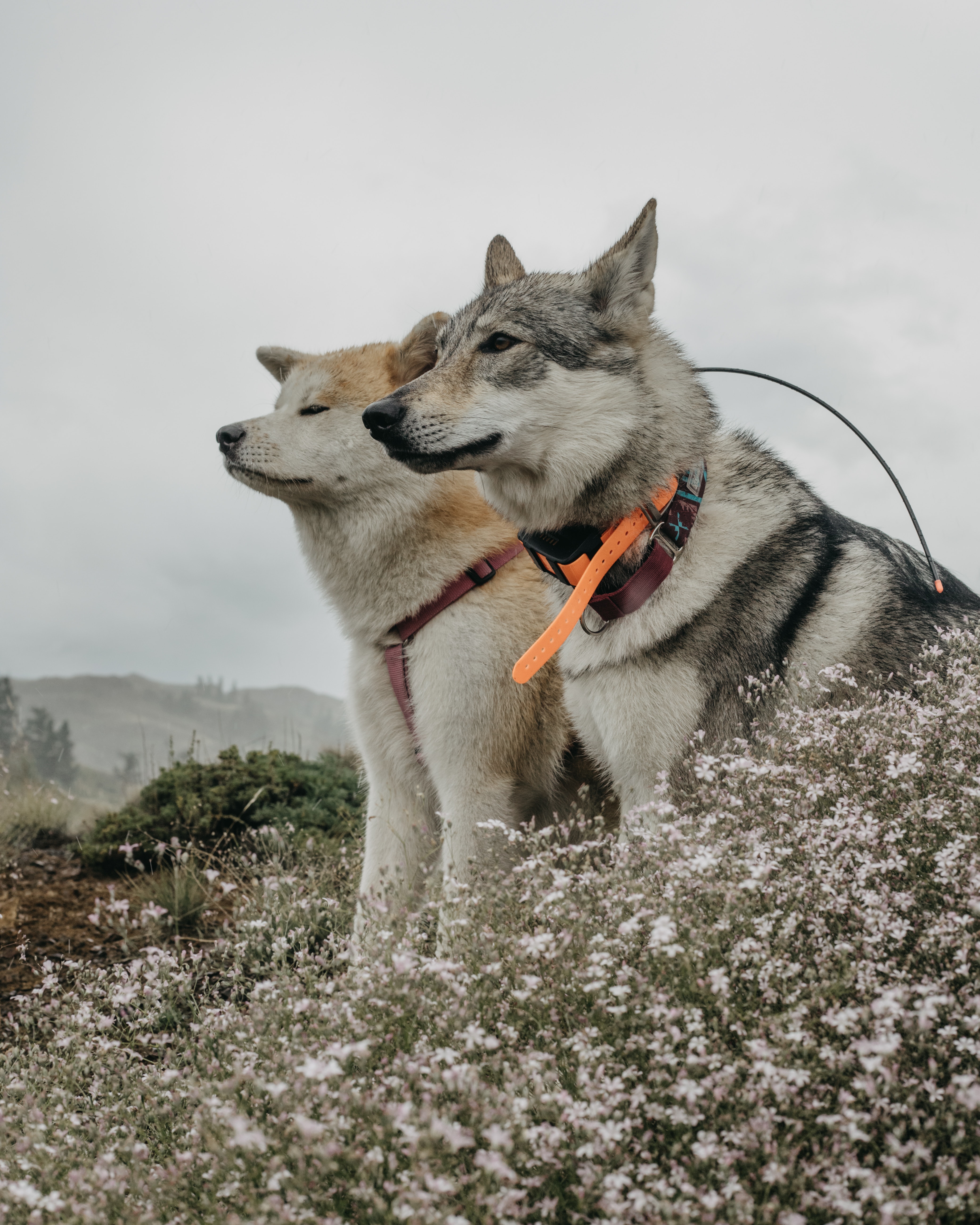
Most people are huge fans of wolves and want nothing more than to own one of these lovely breeds. But the fact remains that wolves are wild animals and, as such, belong in the wild. In some parts of the world, it is even a crime to own a wolf without the proper licenses and a reasonable reason for one.
So the answer to the above question is no, you can’t keep a wolf. But you can keep other dog breeds that closely resemble Wolf. You can get a German Shepherd or even a wolf dog. Wolves are wild and belong in the wild.

